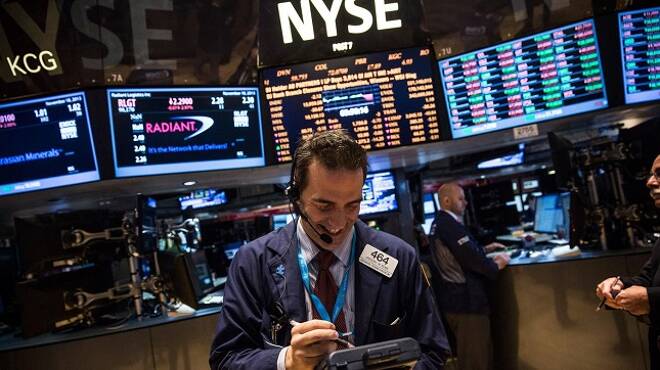Advertisement
Advertisement
Stocks Trade Lower as Volatility Remains Elevated
By:
Global stock markets head south, as markets fret about Trump and new terror attacks in Europe. Asian stock indices mostly closed in the red, as financial
Global stock markets head south, as markets fret about Trump and new terror attacks in Europe. Asian stock indices mostly closed in the red, as financial and technology stocks came under pressure and with Japan underperforming amid a stronger yen. The decline continued in Europe, with IBEX and CAC 40 leading the way and losing more than 1%. The DAX is outperforming slightly but also down on the day. U.S. stock futures are faring somewhat better and are oscillating between marginal gains and losses, after already heading south yesterday. Oil prices are slightly higher on the day recapturing the 47 handle.
Eurozone construction output dropped -0.5% month over month in June, after already falling -0.2% month over month in May. The annual rate still jumped to 3.4 %year over year from 2.7% year over year. Not a closely watched indicator and with Q2 GDP already releases mainly giving background information, but the June data lifted the growth rate for the second quarter to 1.2% from 0.8% quarter over quarter in Q1, indicating that construction is underpinning the strengthening recovery.
S&P affirmed South Korea’s AA rating, citing “remote” risk of conflict with North Korea. S&P predicted that the region “will not escalate” into armed conflict in at least the next two years. This is despite U.S. Defense Secretary Mattis affirming yesterday that “in close collaboration with our allies, there are strong military consequences if DPRK initiates hostilities.” S&P, like many pundits, see that Pyongyang is all bluff, that its threatening rhetoric is aimed at its domestic audience, though how the U.S. and its allies respond to its nearing acquisition of nuclear-capable ICBM technology remains in question.
Eurozone Posted a Current Account Surplus
The Eurozone posted a current account surplus of EUR 21.2 billion in June, which brought the total for the second quarter to EUR 74.7 billion, down from EUR 90.0 billion in the previous quarter. The goods balance widened slightly in June, but the primary income balance dropped sharply and the secondary income balance turned further negative. The unadjusted financial account showed direct and portfolio investment outflows of EUR -5.0 billion, as direct investment outflows amounted to EUR -44.4 billion, which wiped out portfolio investment inflows of EUR 39.4 billion in June.
German producer prices came in higher than expected, with the headline rate falling back only slightly to 2.3% year over year from 2.4% year over year in the previous month. Annual price increases for basic goods eased further, but at 3.0% year over year the rate remains high and the pace of decline since the peak in April has slowed, despite the strong EUR. At the same time, energy price inflation picked up to 1.9% year over year from 1.6% year over year. Capital, and durable goods price inflation ticked marginally higher but remains low at 1.1% year over year for each category.
About the Author
David Beckerauthor
David Becker focuses his attention on various consulting and portfolio management activities at Fortuity LLC, where he currently provides oversight for a multimillion-dollar portfolio consisting of commodities, debt, equities, real estate, and more.
Advertisement
